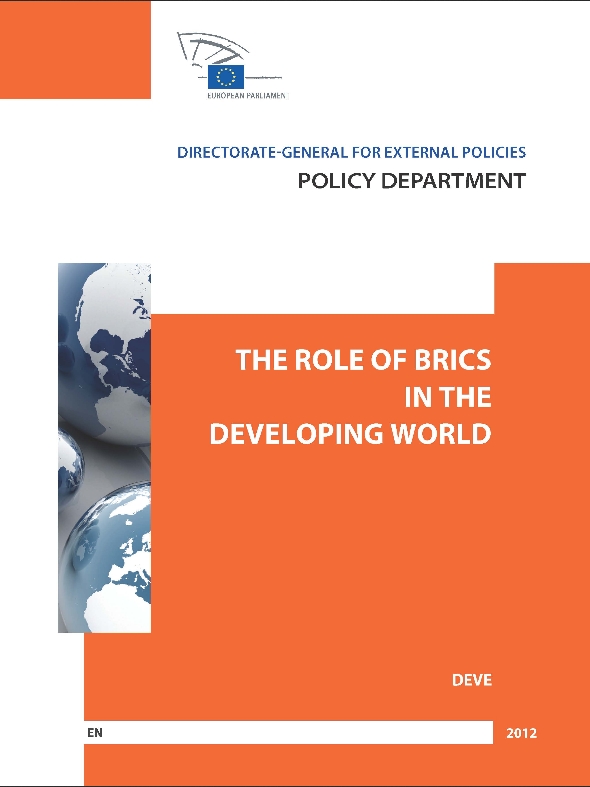With this study, researchers from Südwind Institute (project lead) and Ecologic Institute inform the European Parliament about how the five emerging economies known collectively as the BRICS (Brazil, Russia, India, China and South Africa) are emerging as development assistance donors and potential partners in the developing world. The authors discuss how South-South cooperation is becoming more significant and what challenges it poses to the EU's ODA agenda. Finally, the study provides a series of recommendations for European policy makers.
The BRICS are the world's leading emerging economies. Especially in the last decade, they have been characterized by rapid economic growth and industrialization. Their role in world affairs is thus changing from that of developing countries who are recipients of aid to (again) significant donors of funds. This poses new challenges to the EU’s ODA agenda and has led the EU to re-focus its relationship with these potential partner countries. This study explores these challenges and provides recommendations to the EU on how to address them.
Although the BRICS have not reached the level of industrialization that characterizes traditional donors and are still plagued by persistent inequality and poverty, the BRICS have started to disburse significant investment and foreign assistance funds to other developing countries. South Africa, for example, has become the leading economy in Africa, and as such, is expected to lead peace and security efforts, promote regional economic integration and fund development projects. Similarly, Brazil and India are beginning to exert influence on their less developed neighbors and China is becoming a major source of foreign direct investment in the developing world. These changes are giving rise to so called "South-South cooperation," which is not only modifying the relationship between developing countries but also that between developing and industrialized countries.
Thus, the objective of this study is to inform the European Parliament about how the BRICS are emerging as development assistance donors and potential partners. The authors provide an overview of how development aid has evolved over the past decade, how financing from the BRICS impacts development cooperation, and how development policies differ among the BRICS. The authors also discuss how these changes pose new challenges to the EU's ODA agenda. Finally, the study provides a series of recommendations for European policy makers. The authors' main conclusion is that eye-to-eye dialogue and trilateral cooperation are the best means of addressing BRICS as new stakeholders in 21st century development politics.
The study [pdf, 1.19 kB, English] is available for download.



